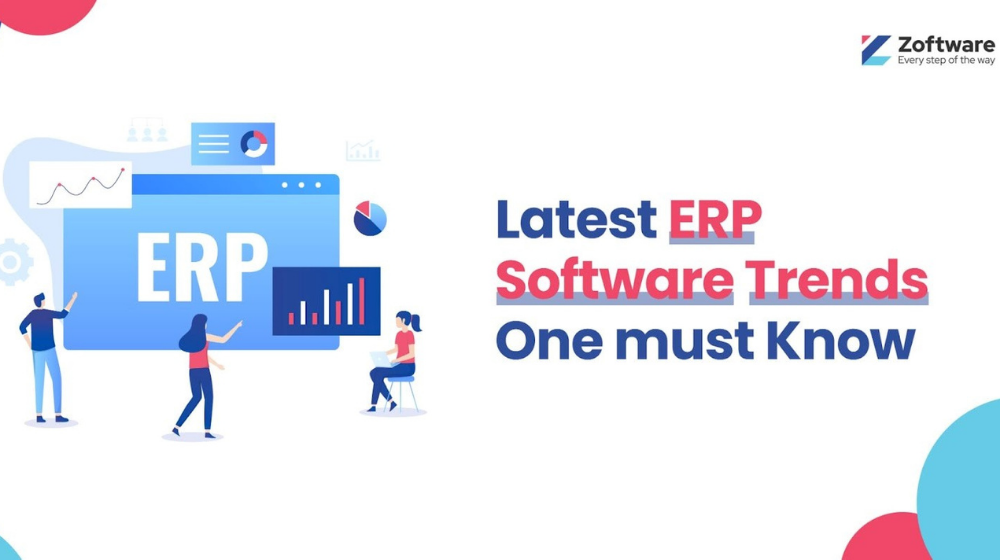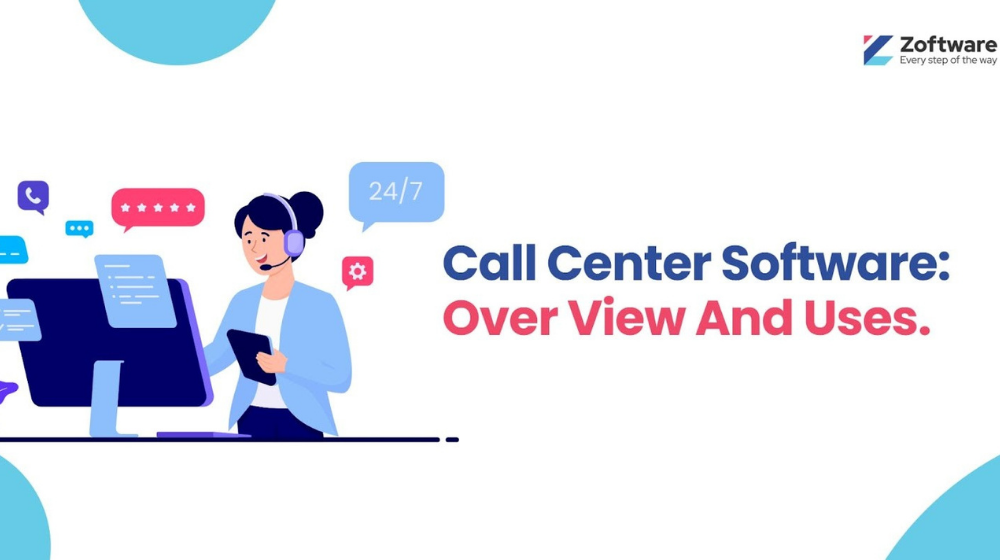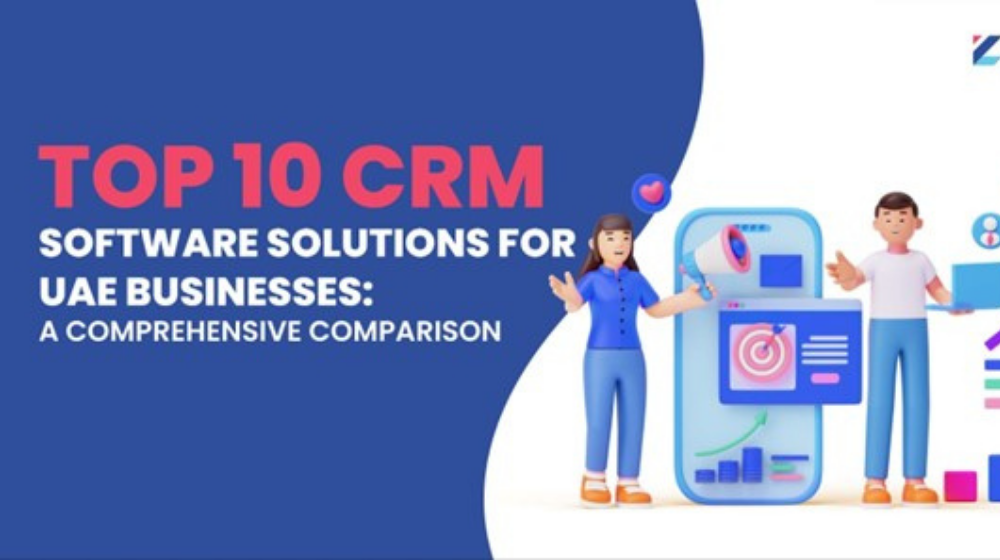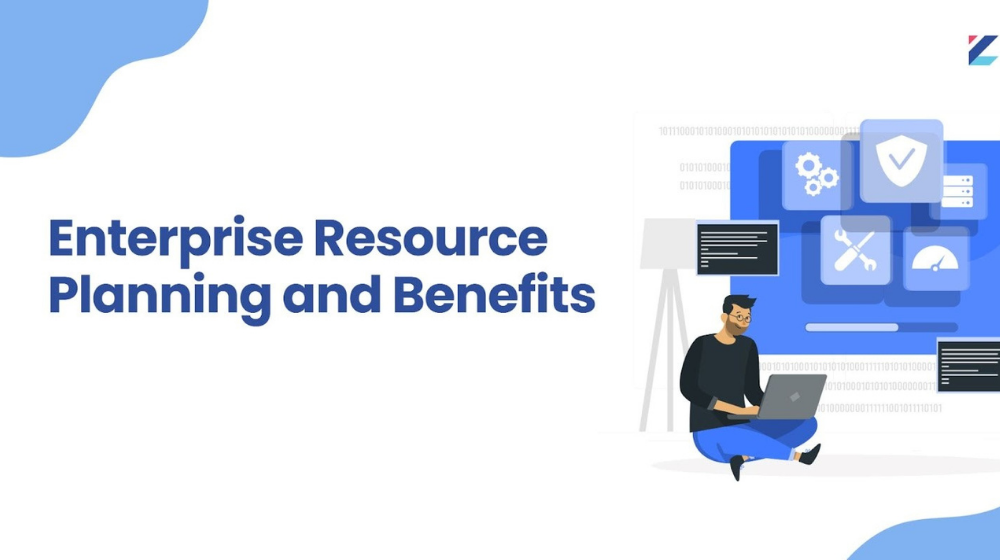40% of businesses cited enhanced functionality as the key motivation for adopting an Enterprise Resource Planning (ERP) system. This represents the practical usage of ERP Software and its significant role in developing businesses. That’s why people continuously invest in ERP Software and follow different ERP Software trends to advance in today’s highly competitive industry. In today’s blog, you will learn about the top 10 ERP trends businesses are rigorously following.But before that, let’s understand what ERP software is and its importance. What is ERP software? Enterprise Resource Planning (ERP) software consolidates various business operations and departments into a unified system, streamlining processes and enabling seamless data management across finance, HR, supply chain, and customer management. This centralized data approach reduces duplication, improves data precision, and facilitates effective decision-making, ultimately enhancing operational effectiveness. The software is pivotal in simplifying intricate business tasks and elevating organizational productivity. Importance of staying updated on ERP software trends Top 10 ERP Software Trends This ERP provides Enterprise Resource Planning (ERP) software and tools via the cloud instead of traditional on-premise systems. This ERP Software trend emphasizes using internet-based platforms, offering greater accessibility, scalability, and cost-effectiveness. Cloud ERP systems are typically easier to implement, update, and maintain. They allow businesses to access their ERP tools from anywhere, facilitating remote work and collaboration. This model also offers enhanced security features and regular updates, ensuring companies can quickly adapt to changing market needs and technologies. The shift towards Cloud ERP represents a significant move in how enterprises manage their resources, offering more flexibility and efficiency in operations. Among all ERP Software trends, this one involves the simultaneous use of two distinct ERP systems within a single organization. A comprehensive, larger-scale ERP system (Tier 1) is typically implemented at the corporate level to handle essential business operations. At the same time, subsidiaries or individual departments utilize more minor, more adaptable ERP solutions (Tier 2). This dual approach enables subsidiaries to tailor their ERP systems to meet local or industry-specific demands, providing enhanced customization and flexibility. Doing so avoids the limitations of a uniform solution, aligning ERP capabilities more precisely with the varied requirements across the organization. In the context of ERP software trends, it is focused on maximizing automation across various business processes. This trend uses artificial intelligence (AI), machine learning, and robotic process automation (RPA) into ERP systems by integrating them. It enhances the capability of ERP systems to automate complex and repetitive tasks. This leads to increased efficiency, accuracy, and productivity. Hyper Automation enables businesses to streamline their operations and make real-time data-driven decisions. And adapt quickly to changing market demands, ensuring a more agile and competitive stance in the digital era. Among all ERP Software trends, this is a powerful shift in business technology. This integration enables businesses to harness vast data from IoT devices and social media platforms. It provides deeper insights into customer behavior, market trends, and operational efficiency. ERP systems can offer more accurate and comprehensive analytics by combining IoT’s real-time data capture capabilities with social media’s rich consumer insights. This results in improved decision-making, enhanced customer engagement strategies, and optimized operations, all crucial for staying competitive in today’s rapidly evolving digital landscape. As an ERP software trend , it refers to the integration of sophisticated analytical tools and techniques within Enterprise Resource Planning systems. This trend involves leveraging data analytics to derive deeper insights and make data-driven decisions across various business functions. Advanced analytics in ERP systems can include predictive analytics, machine learning, and complex data processing capabilities. It enables businesses to forecast future trends, optimize operations, and improve overall efficiency by analyzing large volumes of data from different sources within the ERP system. This approach enhances decision-making and strategic planning, offering a competitive edge in rapidly changing business environments. Please refer to the source articles on ERP trends for more detailed information. As an ERP Software trend, it emphasizes creating ERP systems tailored to the unique requirements of different industries, such as manufacturing, retail, or healthcare. These specialized ERP solutions incorporate features and processes relevant to a particular sector, greatly enhancing operational efficiency and compliance. This approach moves away from generic ERP models, recognizing the diverse needs across business sectors and the importance of industry-specific customization in improving productivity and user experience. This ERP software trend signifies the shift towards making ERP systems accessible and functional on mobile devices. This trend reflects the growing need for business flexibility and the ability to access critical business processes and data from anywhere, at any time. Mobile ERP solutions offer the convenience of remote access, enabling employees to stay connected with business operations while on the go. This enhances productivity and improves decision-making with real-time data access. It caters to the evolving work environment that increasingly favors mobile and remote work. This trend is part of a broader digital transformation in business technology, emphasizing agility and responsiveness in the modern business landscape. It marks a shift in ERP software trends, emphasizing customization to meet unique business requirements and user needs. Moving beyond standard solutions, these systems are designed to fit an organization’s specific workflows, data requirements, and processes. Features like adaptable interfaces, configurable dashboards, and targeted modules cater to individual business functions, enhancing operational efficiency, user involvement, and strategic decision-making, thereby boosting overall business performance. Using Predictive Analytics in ERP software trends is significant, as it enhances decision-making and forecasting abilities. Predictive Analytics utilizes historical data, statistical algorithms, and machine learning techniques to identify the likelihood of future outcomes. This approach in ERP systems helps businesses anticipate market trends, customer behavior, and potential risks. It enables companies to be proactive rather than reactive, optimizing operations, improving customer service, and increasing overall efficiency. Integrating Predictive Analytics makes ERP systems more dynamic and intelligent, providing insights to drive strategic business decisions. It refers to integrating Artificial Intelligence (AI) into ERP systems. This integration enhances decision-making and operational efficiency. The AI algorithms analyze large volumes of data, identify patterns, and predict future trends. This capability allows
What is Call Center Software, and What Are its Benefits?
In today’s fast-paced business environment, efficient and effective handling of customer interactions is crucial. Call center software is designed to streamline customer service operations, providing the tools and resources to ensure your team can deliver top-notch support. Equipping your business with the right call center technology can improve your company’s response time and overall customer satisfaction, making staying competitive in a crowded marketplace easier. Call center software encompasses a comprehensive suite of features that help manage, monitor, and analyze inbound and outbound communication across multiple channels, such as phone, email, chat, and social media. Understanding Call Center Software Call center software is a tool that empowers your business to manage customer communications efficiently. With robust features and integrations, call center software streamlines your customer support process, making it an essential tool for many businesses. One of the main functions of call center software is to automate repetitive tasks, freeing your agents to focus on providing exceptional customer service. This can include automatic call distribution (ACD), interactive voice response (IVR) systems, and integrations with existing customer relationship management (CRM) systems. Another advantage of call center software is its real-time monitoring and analytics. This helps you understand your customers’ needs and improve your support performance. Key metrics, such as call waiting times, agent productivity, and customer satisfaction scores, can be easily tracked and analyzed. Popular Key Features of Call Center Software Core Features of Call Center Software Call center software has various features that can significantly improve your customer service experience. This section will explore core features that set call center software apart from traditional contact center systems. ACD helps to route incoming calls to the appropriate agent based on predefined criteria, such as agent availability and skill set. This enables you to efficiently distribute calls among your team, ensuring prompt responses and reducing customer wait times. IVR allows customers to interact with a menu before reaching an agent, letting them choose the service they need. This can efficiently direct the caller to the right department and agent, saving time for both the customer and your team. Call queuing is essential for managing high call volumes. This feature places callers in a virtual queue until an agent becomes available, providing a better customer experience and reducing frustration due to long hold times. CTI enables your computers and phone systems to work seamlessly. This lets agents be equipped with relevant information about the caller and their query as soon as they pick up the call, ensuring personalized and efficient customer service. Types of Call Center Software Different types of call center software are tailored to meet your business needs. Understanding the various types can help you choose the best solution for your organization. On-Premises Call Center Software On-premises call center software is installed and hosted at your organization’s location. If you choose this type of software, your IT team will be responsible for managing and maintaining the infrastructure, including hardware, servers, and networking components. Pros Cons Greater access control and customization High upfront costs for hardware and installation No internet dependency for software functionality Requires a dedicated IT team for maintenance and updates Typically offers more robust features Limited flexibility and scalability Cloud-Based Call Center Software A third-party provider hosts cloud-based call center software. With this solution, your organization accesses the software via the internet, leveraging the provider’s infrastructure and removing the need for on-premises hardware. Pros Cons Lower upfront costs and predictable monthly fees Reliance on stable internet connectivity for software functionality Easy to scale based on your organization’s needs Less control over infrastructure and customization Automatic updates and maintenance by the provider Data security concerns due to external hosting Virtual Call Center Software Virtual call center software is a cloud-based software that allows agents to work remotely. This solution offers similar benefits to cloud-based software but with additional features designed for distributed teams. Pros Cons Greater flexibility for remote agents Reliance on stable internet connectivity for software functionality Reduced expenses on physical office space and equipment Less control over infrastructure and customization Access to a broader pool of potential employees Data security concerns due to external hosting Benefits of Using Call Center Software Enhanced Customer Service You can offer your customers a more personalized experience using call center software. The software provides quick access to customer information, helping agents address concerns effectively. Features like IVR (Interactive Voice Response) and ACD (Automatic Call Distributor) ensure that customers are directed to the right agent or department, reducing wait times. Additionally, integrating with CRM systems lets agents view customer history, preferences, and previous interactions, contributing to a more tailored customer experience. Increased Agent Efficiency Call center software increases agent productivity with tools like predictive dialers and automated workflows. Predictive dialers automate dialing and filter out busy signals, voicemails, and disconnected numbers. This gives agents a steady flow of live calls, reducing idle time. Automated workflows help agents handle multiple tasks simultaneously, such as taking calls, sending follow-up emails, and updating records, leading to more efficient performance. Improved Call Management Managing call volumes can be challenging without the right tools. Call center software offers call routing and monitoring features to improve overall call management. Call routing directs calls to the most suitable agent or department, ensuring a higher probability of successful call resolution. Call monitoring allows supervisors to listen in on calls and provide real-time feedback, ensuring agents maintain high-quality standards. Scalability and Flexibility Call center software allows you to scale your operations easily, whether expanding or downsizing. The software can adapt to your business needs, ensuring you have the appropriate tools and features as your company grows. Cloud-based solutions offer even more flexibility, enabling you to access the software from multiple locations and devices, making managing remote or distributed teams easier. Call Center Software Integration with Other Systems Integrating your call center software with other systems can enhance efficiency and streamline business processes. By synchronizing customer data and interactions, you can provide a seamless experience for your agents and customers. Let’s explore some
Top 10 CRM Software Solutions for UAE Businesses: A Comprehensive Comparison
Many global businesses invest annually in the UAE due to its favorable government policies and private sector support. FDI inflows into the UAE amounted to AED 83.5 billion (USD 22.7 billion) in 2022, up 10% from 2021. Therefore, whether you are running a small or large business, CRM has become mandatory for every business to stay atop the cutthroat marketplace. CRM software enables businesses to manage customers and store data and sales activities all in one place. CRM can increase conversion rates by up to 300%. With various CRM software available in the UAE, choosing the best one for a business can be overwhelming. If you plan to purchase the best CRM software for UAE businesses, you have come to the right place. We have conducted an in-depth and comparative analysis of the most trusted CRM software in the UAE. Here is the list of Top 10 CRM software in UAE. Let’s get started! What is CRM software? Why is CRM important for UAE businesses? CRM stands for “Customer Relationship Management.” CRM software is a tool that helps businesses manage and analyze customer interactions and data throughout the customer lifecycle. Its primary goal is to improve business relationships, increase customer retention, and drive sales growth. CRM systems centralize customer data, automate marketing interactions, track sales opportunities, and analyze data in one platform. Here’s why CRM software in the UAE is important for businesses: Top 10 CRM software solutions for UAE businesses 1. Zoho CRM – The Best CRM Software In UAE Overview Zoho CRM is a leading CRM software in UAE designed to cater to the unique needs of businesses. With its robust features, Zoho CRM empowers businesses in the Middle East to enhance their sales and customer relationships and offers unique and tailored software solutions for every business to boost overall business growth. Features Here’s a closer look at the top features of Zoho CRM: Prices $9.62/user/month billed annually $16.83/user/month billed annually $28.85USD/user/month billed annually $31.25/user/month billed annually 2. Salesforce Customer 360- Top CRM software in UAE for Managing Business Overview Salesforce, renowned as one of the top CRM software in UAE, presents “Customer 360”. This comprehensive suite is tailored for businesses aiming to optimize their customer relationships. Recognized among the top 10 CRM software for UAE businesses, Salesforce ensures that companies in the Middle East can harness the power of advanced CRM tools to drive growth and enhance customer interactions. Features Prices – Customized pricing plans 3.Pipedrive- Best crm software in dubai for sales-based teams Overview Pipedrive, recognized as a leading CRM software in UAE, is designed to streamline and optimize the sales process for businesses. It is known for its features like online transactions, finding new clients, managing sales, and enhanced Gmail support. You can easily tailor its workflow and data fields to address specific customer needs. Pipedrive has different pricing options suitable for different business growth plans. Plus, it easily syncs with tools like Trello, Zapper, and Google apps. Features Prices Essential: $14.90/user/month Advanced: $27.90/user/month Professional: $49.90/user/month Power: $64.90/user/month 4. Apptivo- Best CRM software for UAE businesses Overview Apptivo, emerging as a top CRM software in UAE, offers a comprehensive suite tailored for businesses aiming to optimize their operations and customer relationships. Features Prices 5. Freshworks- Top CRM in middle east offering a free package Overview Freshworks presents “Freshsales,” a dynamic CRM software in UAE tailored for businesses aiming to optimize their sales operations and customer relationships. It is a CRM tool designed to boost sales by emphasizing lead generation. It uses AI to highlight leads with the best chance of conversion. Companies can set up custom automated processes, gather insights from interactions, monitor activities, and see all essential customer data on one screen. Features Prices 6. HubSpot CRM- Best Free CRM for UAE Businesses Overview HubSpot CRM is a top CRM software in the UAE designed to empower businesses with tools that streamline sales and customer relationship processes. It offers a blend of advanced features and user-friendly interfaces, ensuring businesses in the Middle East can effectively manage and enhance their customer relationships. Features Prices – It’s free of cost. 7. Microsoft Dynamics 365 CRM- CRM software in UAE with top-notch features Overview Microsoft Dynamics 365 CRM is a cloud-based customer relationship management (CRM) solution that helps businesses of all sizes manage their sales, marketing, customer service, and operations processes. It is a comprehensive solution that offers a wide range of features, including: Features Prices It offers a comprehensive pricing structure. Click here to explore their pricing system. 8. Sugar CRM- Best CRM In UAE To Streamline Your Entire Business Overview SugarCRM, recognized as a leading CRM software in the UAE, is designed to help businesses create lasting customer relationships. It enables companies to track leads from initial contact to conversion. With SugarCRM, businesses can automate many of the tasks involved in the sales process, such as lead nurturing and follow-up. Features Prices 9. SAP CRM & Customer Experience- Best CRM in UAE for Ease-of-use Overview SAP CRM, a prominent CRM software in UAE, is tailored to empower businesses in the Middle East to foster exceptional customer relationships. It is a suite of cloud-based solutions that help companies create and deliver outstanding customer experiences across all channels. It includes solutions for commerce, customer data, marketing, sales, and service. It is not just a tool but a comprehensive solution for businesses in the Middle East. Features Prices 10. Oracle CRM- A On Demand CRM in UAE Overview Oracle CRM, a leading CRM software in UAE and across the Middle East, is an integral part of Oracle’s comprehensive suite of business solutions. It’s a tool for managing customers, created by Oracle Corporation and combines Oracle and Peoplesoft products, with Siebel CRM, and CRM Software on Demand being its main offerings. Features Prices Comparative analysis of the top 10 CRM software solutions (Table) Feature Zoho CRM Salesforce Customer 360 Pipedrive Apptivo Freshworks HubSpot CRM Microsoft Dynamics 365 CRM Sugar CRM SAP Customer Experience Oracle CRM On Demand Contact
Explore Benefits of ERP Software: A Comprehensive Overview
64% of companies are planning to implement ERP within the next three years. The adoption of ERP software is gaining momentum globally among businesses. This trend is driven by ERP’s numerous advantages, including enhanced efficiency and productivity. Enterprise Resource Planning (ERP) software is a powerful tool that integrates various business processes into a single, cohesive system, streamlining operations and enhancing efficiency. In this blog, you are going to learn about ERP software and the benefits of using it. To understand this, let’s first see what ERP software is and what its role is in modern business. ERP Software: An Ultimate Guide for Understanding What is ERP – Enterprise Resource Planning? ERP (Enterprise Resource Planning) software integrates diverse business operations and departments into one system. It simplifies processes, ensuring seamless data management across finance, HR, supply chain, and customer management. This data centralization minimizes duplication and enhances data precision, supporting effective decision-making and operational effectiveness. The software is crucial for streamlining complex business tasks and boosting organizational productivity. Role of ERP in Modern Businesses ERP software plays a crucial role in modern businesses, serving as the backbone for managing various core operations. Here are some critical roles of ERP Software in modern businesses: But there is more to understanding how different types of ERP systems work. So, let’s explore three primary kinds of ERP Systems. Various types of ERP systems: on-premise, cloud-based, and hybrid ERP systems are available in various models, each distinct in its characteristics and advantages. The main categories include on-premise, cloud-based, and hybrid systems: Each type of ERP system caters to different business needs and priorities, such as budget constraints, control requirements, scalability needs, and the importance of remote accessibility. The choice depends on the specific requirements and resources of the organization. Difference between ERP Software and other business softwares ERP (Enterprise Resource Planning) software differs from other business software’s comprehensive approach to managing an organization’s processes. While other business software typically focuses on specific areas or functions, ERP integrates multiple facets of a business into a single, unified system. The integration allows for seamless data flow and coordination across various departments, from finance and human resources to supply chain and customer relationship management. In contrast, standalone business software solutions often operate in silos, addressing specific tasks without the broader organizational context that ERP provides. ERP’s holistic approach facilitates improved decision-making, efficiency, and collaboration across the organization. Benefits of ERP Software Here are some common erp software benefits to understand how it works and also erp software for small businesses : It does this by looking at past data and current trends. Accurate forecasting helps optimize inventory levels and manage supply chains effectively. And plan for financial needs. This foresight enables businesses to be proactive rather than reactive. It positions them for success in a competitive marketplace. After understanding ERP software and its benefits, you will have understood how important it is for your business to streamline processes. Deciding on the right ERP software will require more time and effort. But to manage your time effectively and save your resources, it is essential to get help from professionals. One such is Zoftware. Zoftware is a software discovery platform located in the Middle East. They streamline the process of finding the ideal ERP software by aiding businesses in outlining their needs, comparing different software options. They make well-informed choices based on genuine user reviews. Conclusion This blog has explained ERP software and its benefits to you. No matter your enterprise’s size, implementing a suitable ERP software management system is vital to boost and streamline your business’s performance. Selecting the right ERP software for your business can be challenging. Its critical role in driving business growth makes it imperative to choose carefully. But you’re not alone in this process. We’re here to help.Register today at Zoftware to discover the ideal software solution for your business.



